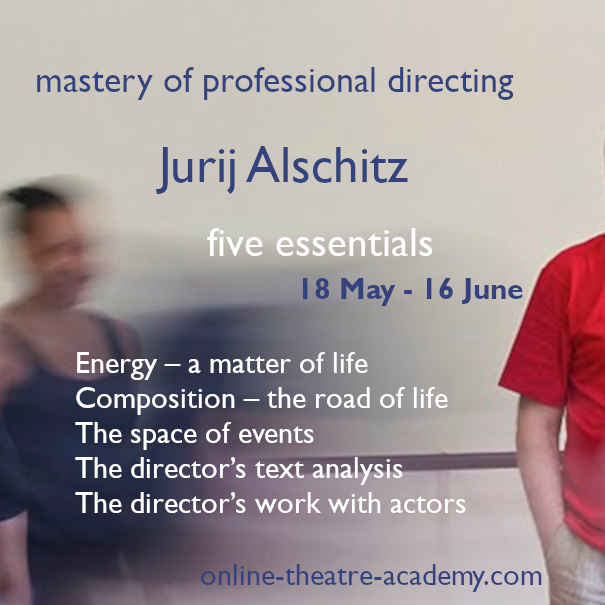
Jurij Alschitz
Five Essentials for Directing – Five Online Meetings of two days each
18 May – 16 June 2022
We talk about the art of directing and the craft of directing. In summation, we will get the mastery of professional directing.
Jurij Alschitz, who has staged a multitude of performances all over the world, will combine the classical school of craft with innovative techniques in this course. Your own mastery can be seen when you can confidently deal with a wide range of options and start experimenting on a professional basis.
Directors ask actors to trust them. As artists we should not be afraid to take risks, but as directors we have an enormous responsibility – towards art and towards our actors. The greatest happiness is to create works together – and this process lies in the hands of the director. When it happens, we speak of mastery. There is no recipe for this, but there are professional ways to get there. This course invites you to do so, with 5 topics for 5 meetings over two days each. You can attend one or all of them:
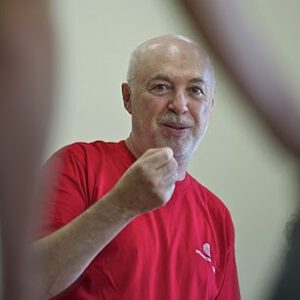 |
18/19 May 15-18:00 (UTC +2) Meeting one. Energy – a matter of lifeIf there is energy – there are signs of life. If there is no energy, nothing will help your performance. The director’s first skill lies in the ability to find the sources of energy in the performance and in the technique of managing these energies. It’s a question of the life-span of your work. |
|
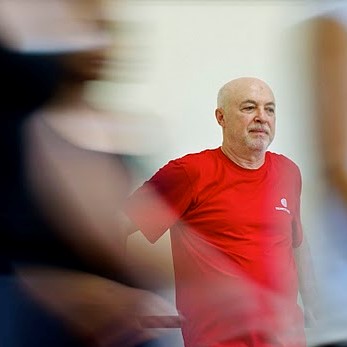 |
25/26 May 15-18:00 (UTC +2) Meeting two. Composition – the road of lifeYou have to be able to build the road of life, with its foundation, character and direction of movement. The composition of a performance is the skeleton to which the body is attached; it forms the structure of the building. Knowing the basic rules of composition is half the battle for your professional success; more than that, it is your artistic language. |
|
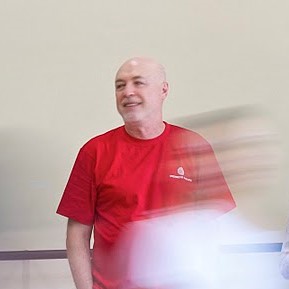 |
1/2 June 15-18:00 (UTC +2) Meeting three. The space of eventsThe path of a performance is complex and multifaceted; it is full of encounters, signs and incidents. But your performance can leave the linear path to become a space of events, a field of events. Think of it as a sphere of events or a flash of events. How do you actually determine what is an event and what is an ordinary fact? How do you build a game out of events? The non-ordinary definition of an event, the paradoxical treatment of its status, the refined play with events shows the ornamental art of the director.
|
|
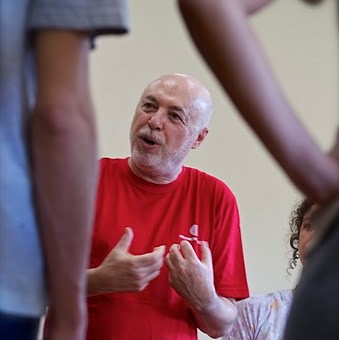 |
8/9 June 15-18:00 (UTC +2) Meeting four. The director’s text analysisThe literary text is an important tool for the director’s work on a production. Most of the time it is the basis. Neither a scientifically correct analysis of the text, no matter how complicated, nor one’s own interpretation, however interesting and idiosyncratic it may be, guarantees success when the ability to translate words into stage action is lacking. There are some basic secrets of textual analysis that a director must know. |
|
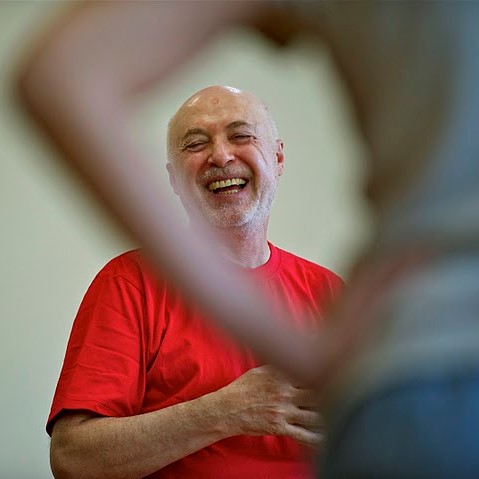 |
15/16 June 15-18:00 (UTC +2) Meeting five. The supreme discipline: the director’s work with actorsAll your talent, all your competencies such as composition building, text analysis, identification and definition of events, etc. require only one thing: the actor who brings it all to life on stage. The top level of directing lies in the director’s ability to rehearse with the actors. If the dialogue does not work, all that you have thought of, found and meticulously prepared will not be realised. The actor is the most complex object for directing. There are director’s rules for working with actors, which you have to follow and try not to violate. |
